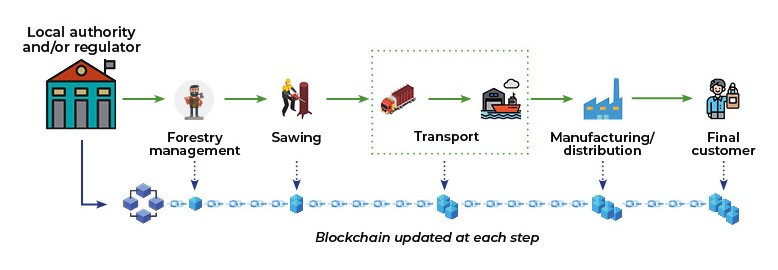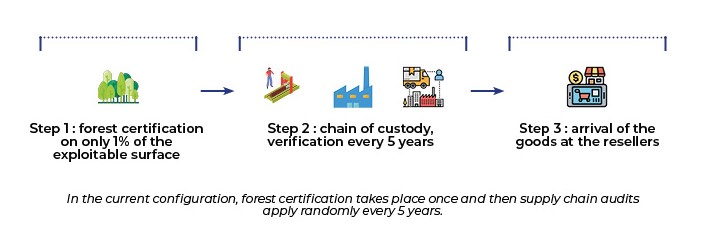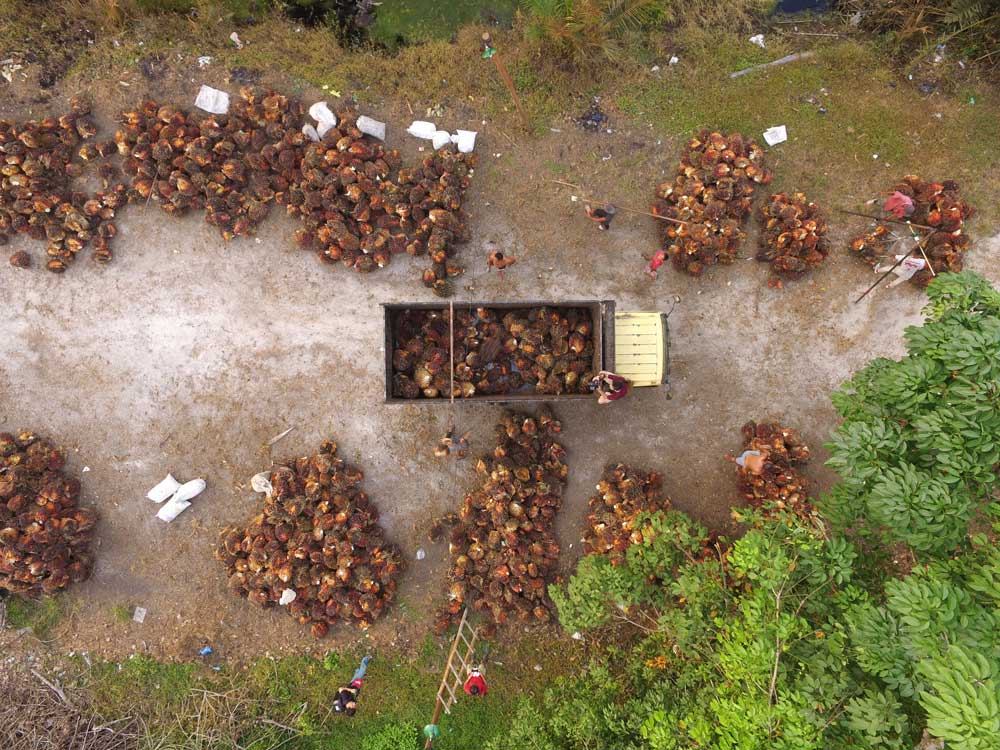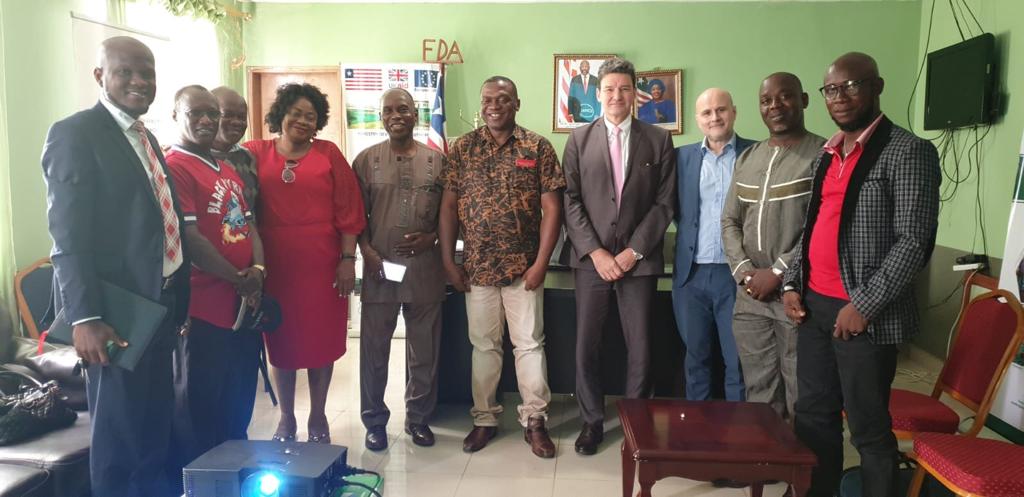The technological approach developed by WIBEX radically transforms traceability in the wood industry. It goes far beyond current standards by continuously auditing the entire supply chain.
How can we be entirely sure that the wood used in furniture sold in a store comes indeed from a sustainable forest? This question has been a hot topic in the wood industry for years. However, the current answers, coming from the various certification bodies, are far from being fully satisfactory.
For the vast majority of the professionals concerned, all over the world, the current processes are long, costly, complex and weak. As a result, there is no proof that the board used in furniture is the one originally purchased. In fact, despite standards and certifying organisations, illegal logging remains a huge concern: it accounts for 50 to 90% of all logging activity in the three major tropical forest zones (South America, West Africa and Southeast Asia), according to WWF. In Gabon, 70% of logging is considered illegal; in Russia, 25% of exports come from illegal forest activities.
On the other hand, logging companies themselves are not directly responsible. The growing market demand for wood, which is expected to triple between 2020 and 2050*, inevitably leads to an increase of the worldwide illegal logging through overexploitation of forest ecosystems.
WIBEX’s two-step answer
Trading wood, like other raw materials, requires more standardisation, efficiency and monitoring of the products exchanged. Today, wood is the only raw material that is not subject to a reference market. This is the first stone of WIBEX’s response, which has developed a digital tool connecting instantly buyers and sellers. By creating this market, then it becomes possible to exclude from the transactions wood with suspicious origin.
The transaction is therefore the first step in the traceability chain. The marketplace, as proposed by WIBEX, creates a more efficient and more liquid market. It is a question of moving from bilateral deals struck directly between two parties, as seen currently, to transparent and anonymous transactions based on an electronic platform that match buyers and sellers. By doing so, information becomes standardised and accessible to all professionals in the sector.
Once this system is in place, with prices determined for given products, WIBEX will implement a supply chain traceability solution. Our team has thus developed a specific technology, allowing the raw material to be continuously tracked, from the marking in the forest to the point of shipment. The application of our technology even goes much further, allowing, for example, to follow a production from an individual tree or log.
All the features of the transaction are recorded in a digital contract, the virtual form of the exchanged product. This information is aggregated, verified, and validated throughout the supply chain, right up to the moment of physical exchange, when the transfer of ownership from the seller to the buyer takes place.

A painless change of method
It is therefore not the standards, but rather the current method to implement them that is to be questioned: instead of a model of statistical, random and human-declaration-based checks, WIBEX proposes a mathematical, technological and above all forgery-proof model. It directly involves local regulators and all the actors in the supply chain. Traceability is therefore permanent, whereas today’s methods provide for audits carried out by a single entity once every five years!

The WIBEX system therefore recreates the trust necessary for collaboration between actors, sometimes partners, sometimes competitors. And this, while guaranteeing security, traceability and confidentiality.
*source : Royal Forestry Society https://rfs.org.uk/
Contact : contact@wibex.org



